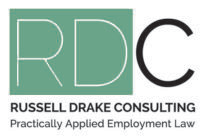Since returning to the office after the break, several clients have enquired whether it is likely that we will return to lockdown in 2021 and if so, what can employers do to prepare themselves for this?
The fear of a further lockdown is clearly motivated by the emergence of the new UK and South African strains of COVID-19 and, although these have been controlled at the border to date, many employers do not hold great confidence in the Government’s ability to continue to control this going forward. This concern is heightened by reports that a person tested positive for COVID-19 on their 18th day in isolation, where a usual stay is 14 days.
Employers are therefore seeking to be proactive to have a clear plan in place, particularly around employee wage payments and possible reductions in wage rates, should another lockdown occur at short notice.
So, what have we learnt from Lockdown 2020:
Lockdown 2020 was an entirely new experience for everyone and, as there was no proforma to follow, everyone had to make the process up as they went based on the limited information that came out of the Government – who themselves had to make this up on the run.
While many employers had no issues with this, some PG’s were raised that were quickly alleviated to the Employment Relations Authority. The ERA gave priority to these cases and therefore we now have some Case Law to rely upon in determining what is deemed to be procedurally correct and what isn’t.
The key aspects to take from the ERA Cases are:
- No variation can be made to an employee’s terms and conditions (including pay rates) unless this has been agreed in advance
- The instruction from the Government that “employers should make all reasonable efforts to seek to pay at least 80% of the employee’s usual wages” is not an exemption to enable the employer to reduce the pay rate without prior approval
- Any wage subsidy payment must be passed on in full to the worker – excepting where the workers ordinary weekly wages are less than the amount of the subsidy
- There needs to be evidence of genuine consultation and agreement prior to any reduction in pay rates being implemented
As many employees are aware of these directives, it may be a little harder next time around to get staff to agree to a wage reduction in a crisis situation as they know that this cannot be imposed upon them without their prior agreement. However, the majority of staff will be obliging in their acceptance as they now more strongly recognise that, to not agree is more likely to result in redundancies in a tightening recruitment market – this however will not prevent some staff digging their toes in.
Therefore, in a likelihood that last year’s lockdown may not be the last one we experience, it would be beneficial to have a “lockdown” policy in place that staff were provided with now, asked to sign and return, that effectively already gained their consent to implement a change if a lockdown was required at short notice.
The bones of this would have to answer the following questions:
- Is there an acceptable period of a lockdown where you should carry 100% of the staff remuneration costs before imposing any reduction?
- What are fair and reasonable arrangements for employees who can continue to do at least some of their work from home?
- What are fair and reasonable arrangements for employees who may be required to come into work for reduced hours while providing an essential service?
- What amount of reduction is fair for those staff who will not be required to undertake any work during the period of the lockdown?
And the big question – how can you get staff agreement to a reduction model prior to a lockdown occurring, and what are your options if some employees do not agree to accept any form of financial reduction to their current earnings.
We are currently developing a Lockdown Policy to assist you in addressing these questions. If you would like a copy of the Policy please let us know, or if you have any other specific questions regarding a potential future lockdown please feel free to give us a call.

